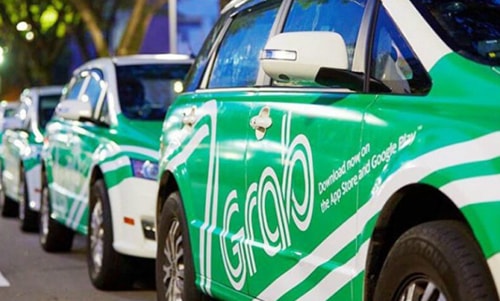Traditional taxis fear being "suffocated" if Uber and Grab develop
Experts say that the Draft Amendment to Decree 86 should not develop other types of transport, but should only maintain two types of taxi and contract.
Once again, conflicting views on regulations related to the operations of traditional taxis and technology vehicles such as Uber, Grab... in the draft Decree replacing Decree 86 on transport business conditions were dissected by experts and businesses at the consultation workshop of the Central Institute for Economic Management (CIEM) on August 21.
Traditional taxi businessesHe still maintains the view that technology cars like Uber and Grab are also in the transportation business like taxis, so they should be subject to the same management as taxis. "Electronic contracts are just a method of contract, not a business model. Sadly, the complaints of thousands of official taxi drivers have not been reflected in the draft amendment to the Decree," said Mr. Ta Long Hy - Chairman of the Ho Chi Minh City Taxi Association.
According to Mr. Hy, the draft amendment to Decree 86 should not develop other types of transport such as: electronic vehicles, electronic taxis... in addition to the existing types; only two types of taxi and contract should be maintained as stipulated in the Road Traffic Law. Official taxis can increase utilities, payment methods... but basically must satisfy the business conditions for that field.
“Letting e-taxi exist is to “kill” the legitimate taxi business. All similar vehicles should be put into the same category, such as putting current e-contract vehicles into the taxi sector to be managed like taxis, and eliminating the concept of independent e-contract vehicles as a new form of transport,” Mr. Ta Long Hy emphasized.
|
Grab technology cars operate on a pilot basis in Vietnam. |
Commenting on this point of view, Dr. Nguyen Dinh Cung - Director of CIEM said that currently passenger transport is experiencing a conflict between new and old business trends, which are traditional transport and modern technology applications like Uber and Grab. However, like it or not, new business methods, new trends, new technology will replace the old. "Uber and Grab are phenomena of new business, sharing economy, digital economy. Like it or not, they still exist," said Mr. Cung.
Faced with new development trends, management agencies should not ban them, but traditional businesses must innovate to compete with the inevitable new trends. "We cannot apply old standards to others because it will be difficult to accept them. Society must accept new things. I really hope that businesses and associations will change their thinking," Mr. Cung emphasized.
Meanwhile, referring to the "unreasonably imposed" business conditions in the draft,Ms. Nguyen Minh Thao - Business Environment Committee (CIEM) said that the draft Decree amending Decree 86 expands business conditions, not just cuts them. According to CIEM statistics, 12 conditions are cut, but 85 conditions are added, of which 64 are new conditions, 21 conditions are according to the regulations of the Minister of Transport.
StillLawyer Truong Thanh Duc - Chairman of Basico Law Firm said, in essence, the draft Decree "cuts one and adds three business conditions".The draft regulation that attaching two types of license plates to taxis and e-taxi is unnecessary, because regular taxis can still run the e-taxi application. Moreover, the regulation on e-taxi has regular taxis, especially not suitable for non-professional taxis, which are combined and exploit the sharing economy model.
“This distinction may only be necessary for State management, but has no meaning for passengers - the primary target group that needs to be served in a simple, convenient, and quality manner,” lawyer Duc suggested.
Benefits of applying technology in business,especially transportationAccording to Mr. Ngo Tri Long - an independent expert, this has been partly proven through the recent pilot period of this type, when turning small transport cooperatives into formidable competitors, forcing taxi companies to quickly improve technology and quality. However, some regulations in the draft are hindering the creativity of the digital economy.
He gave an example.Clause 4, Article 16 of the draft stipulates that "technology enterprises will have to meet the business and operational conditions as transport units, if their software helps with transport management and pricing". This regulation, according to him, not only changes the nature of the software provider's operations, but also eliminates most of the advantages that the connection service brings, turning it into simply a communication channel.
"Therefore, instead of imposing and restricting the activities of technology enterprises within the current management scope of a number of state agencies, the draft needs to provide measures to encourage technology enterprises to participate more deeply in applying technology to the transportation business," Mr. Ngo Tri Long suggested.


